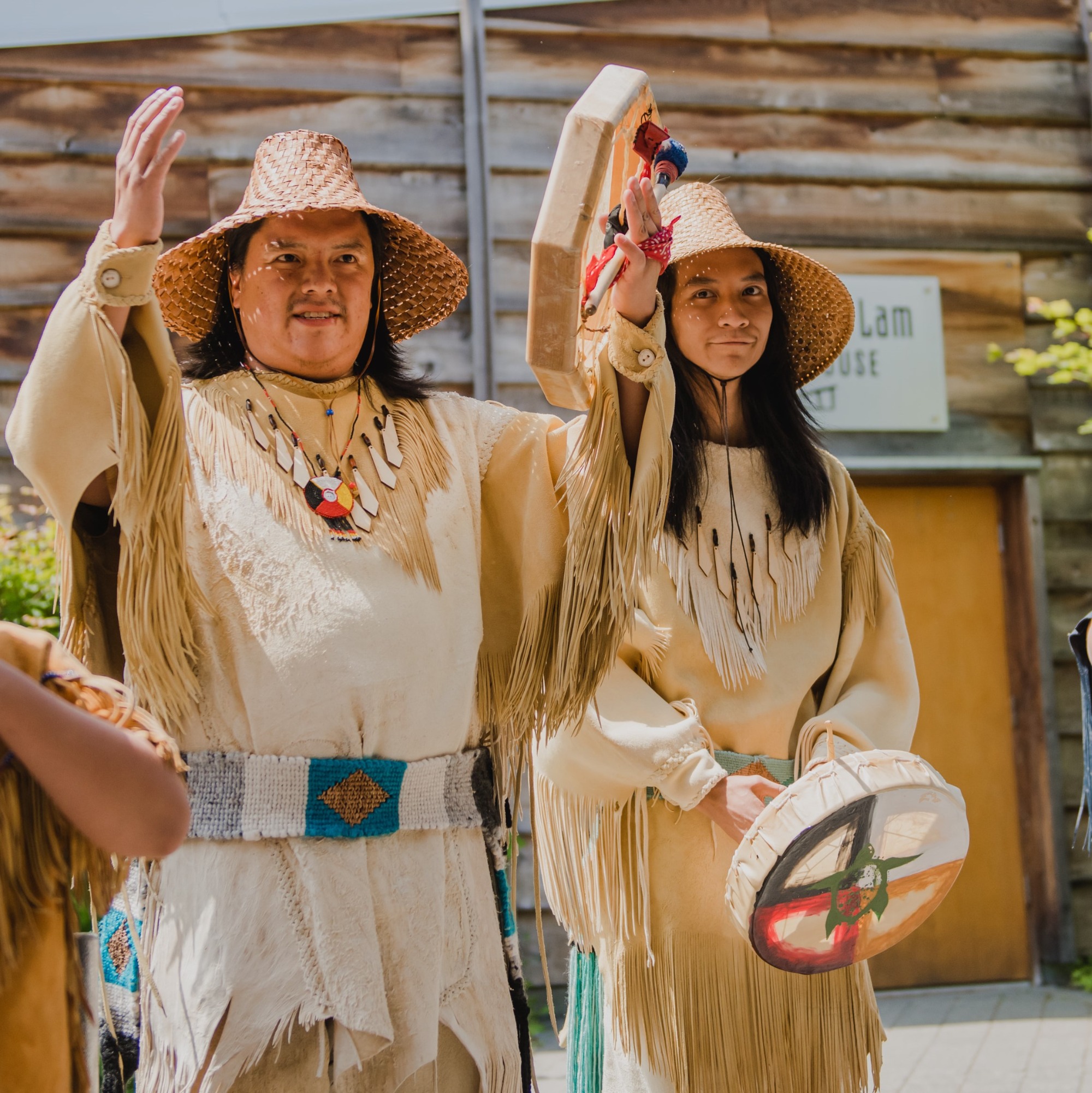With the farm to table philosophy having firmly taken hold in the last couple of decades, food lovers are more interested in the source of their sustenance than ever. However, the very foundation of the eat-local approach goes back much further than that. Canada’s Indigenous peoples are the original architects of the so-called 100-mile diet. This year, some of Cornucopia’s programming will shine a light on the flavours and bounty of First Nations food.
The Squamish Lil’wat Cultural Centre’s Spo7ez Table luncheon (Nov. 9) takes its name from that of an ancient village at the confluence of Rubble Creek and the Cheakamus River that was once shared by the Squamish and Lil’wat Nations. Inspired by the history of the two nations and the harmony among them that exists to this day, the inaugural event will unfold in the centre’s Great Hall underneath traditional wooden dugout canoes suspended from its 22-foot ceiling.
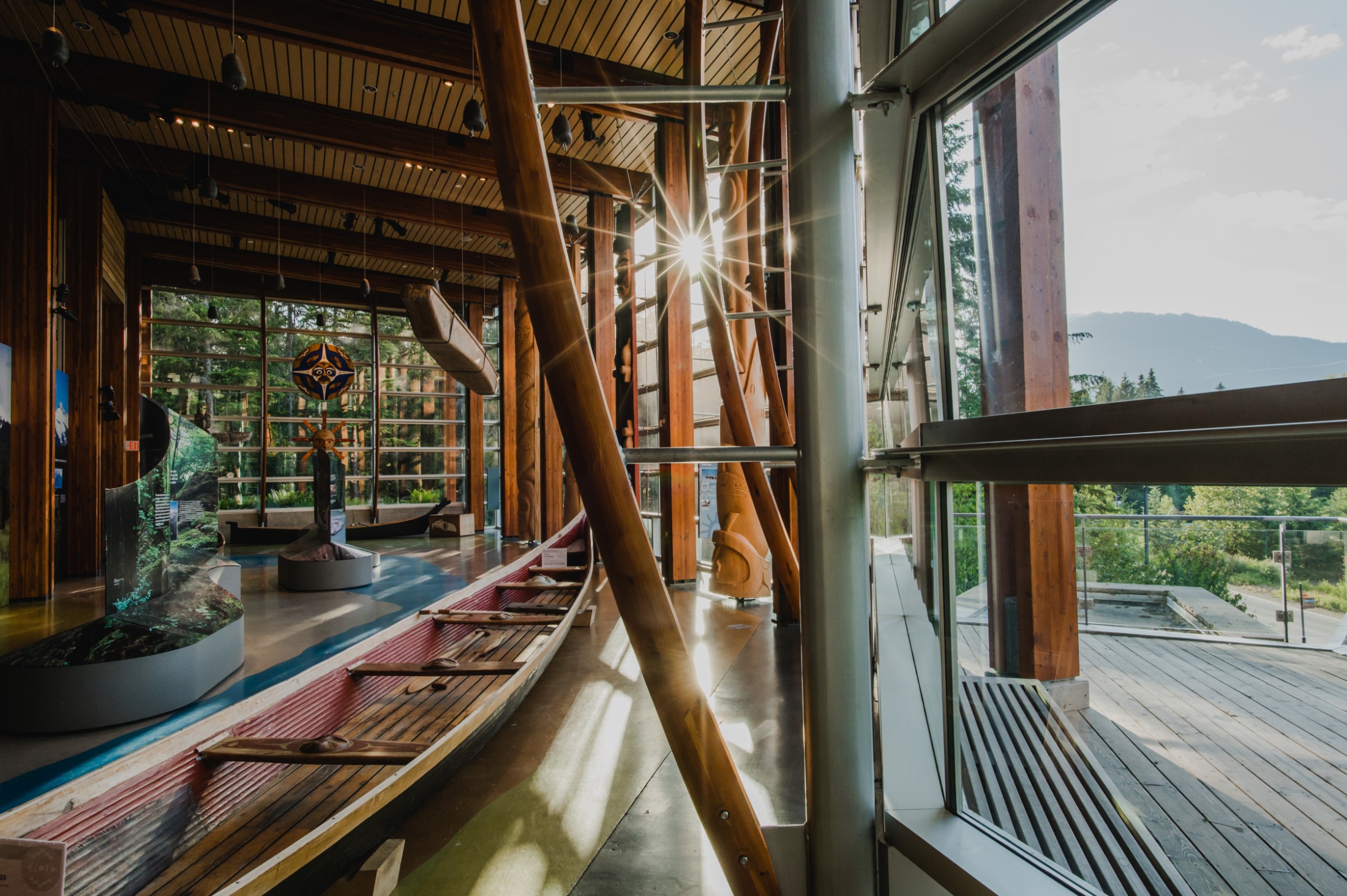
The Spo7ez Table luncheon will take place in the Great Hall of the Squamish Lil’wat Cultural Centre in Whistler. Photo courtesy of SLCC.
SLCC executive chef D’Arcy Demoe has created a four-course meal that incorporates traditional foods and modern-day ingredients. Consider smoked oysters, for instance, a Coast Salish staple served with Pemberton potatoes, or tender bison short rib finished with a French demi-glace infused with wild herbs.
Techniques like salting, smoking, and pressing that were used centuries ago to preserve foods will be used to prepare fresh seafood. Locally foraged hazelnuts and sxúsum, or soapberry, also appear on the menu, which features wine pairings from Lillooet’s Fort Berens Estate Winery and Indigenous World Winery in Kelowna. The latter is run by Robert Louie and Bernice, who are descendants of Syilx People of the Okanagan Nation.
While the food and wine may be a key draw, they’re but one element of the afternoon program. Dressed in traditional regalia, the SLCC’s cultural ambassadors will commence the lunch with a feast blessing and bring the event to a close with a farewell song, sharing stories in between. It’s all part of the gathering’s greater purpose: to forge a deeper connection among guests to the land and to each other.
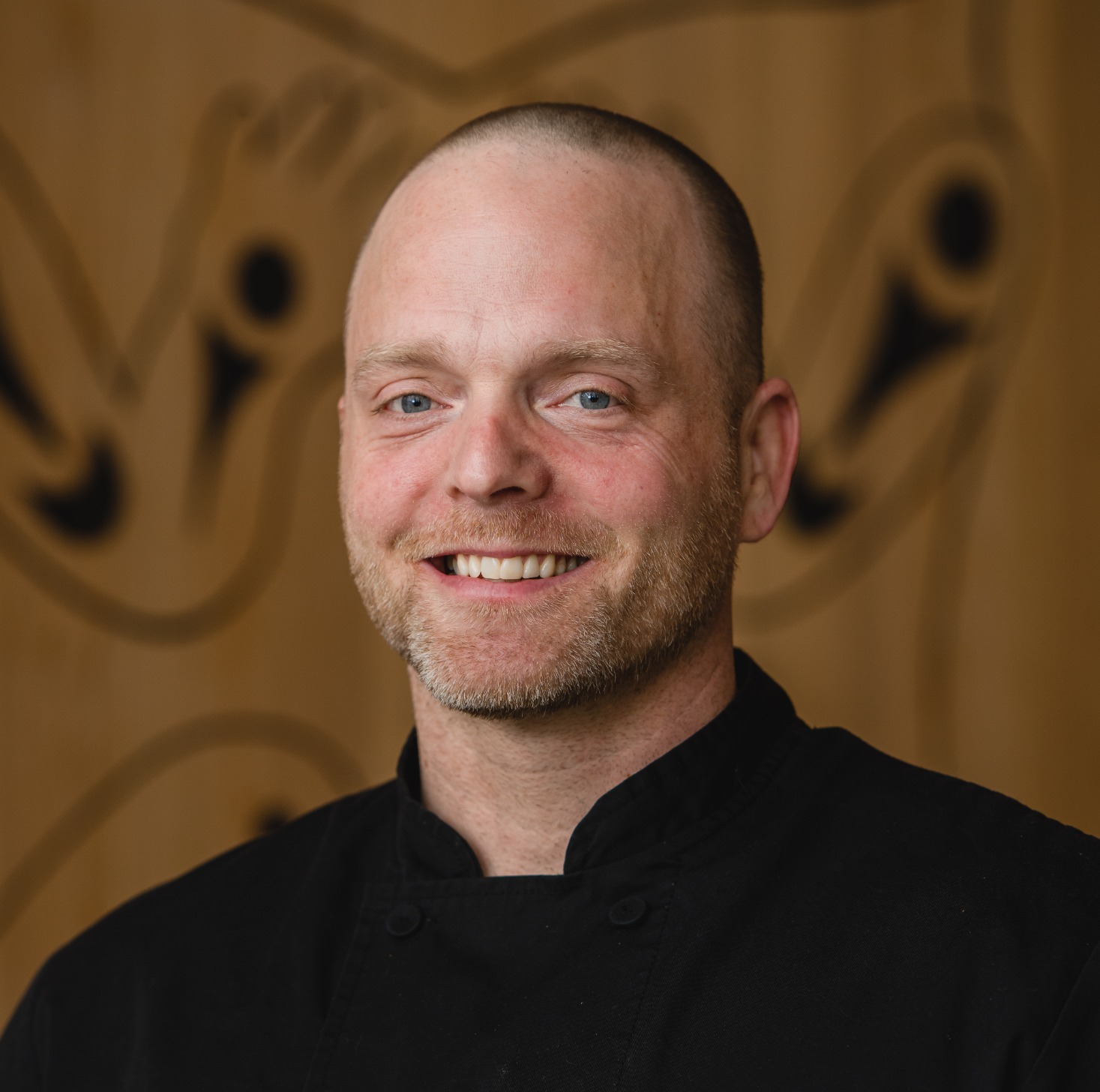
Squamish Lil’wat Cultural Centre executive chef D’Arcy Demoe. Photo courtesy of SLCC.
“There’s just as much focus on Pacific Northwest ingredients as there is on the ceremony surrounding food and communal eating,” Demoe says. “It’s a whole experience.
“There’s a real sense of peace and serenity in this centre,” he adds. “There’s a lot of pride in the community here. This is a chance to showcase that and the importance of honouring yourself by taking the time to eat a meal and to sit with family and community and enjoy.”
On Nov. 12, Fairmont Chateau Whistler will host the Indigenous World Winery Winemaker’s Dinner. Having collaborated with the Kelowna-based winery for World Oceans Day earlier this year, executive chef Isabel Chung and executive sous chef Derek Bendig were inspired to create a full dinner that builds on existing partnerships with Indigenous-owned ventures.
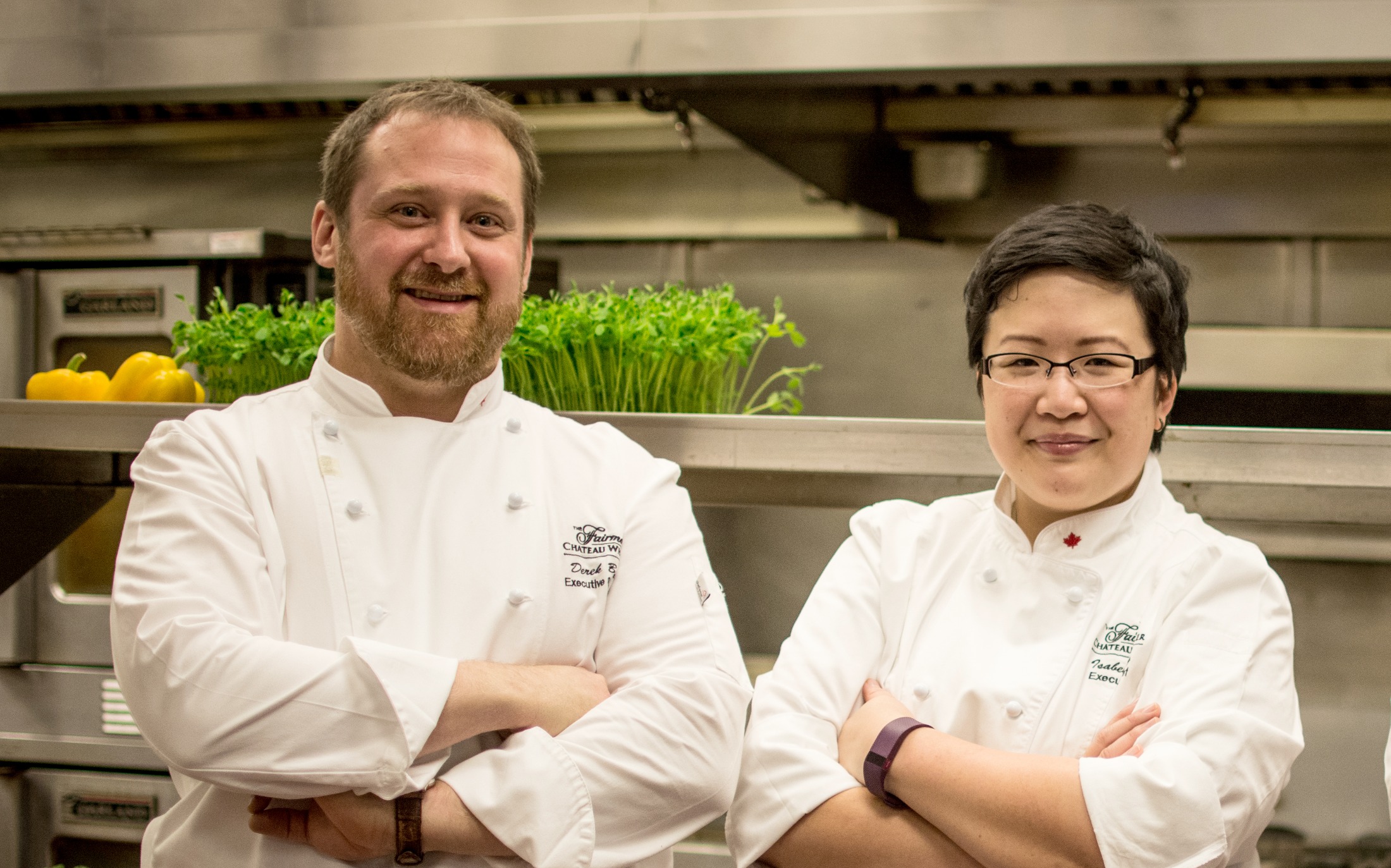
Fairmont Chateau Whistler executive sous chef Derek Bendig and executive chef Isabel Chung. Photography by Julie Zoney.
Prince Rupert’s Coastal Shellfish harvests sustainable Great Bear scallops, for instance, while the N’Quatqua First Nation, situated at the head of Anderson Lake between Pemberton and Lillooet, supply sustainable rainbow trout. The fish will be prepared two ways—cured and cooked sous-vide—and “tastes like the freshest, cleanest rainbow trout you’ve ever had,” Chung says.
Chung and Bendig will also prepare smoked sablefish wrapped in their signature smouldering wood, paired with Indigenous World Wines’ 2018 Ho-We-Nam-Ho-We-Nem sparkling wine. Along with 2018 Muscat, seared Great Bear scallops will be served with velvety cauliflower purée and truffle-scented king oyster mushroom. Bison tartar, seared venison, and beef tenderloin round out the six-course menu.
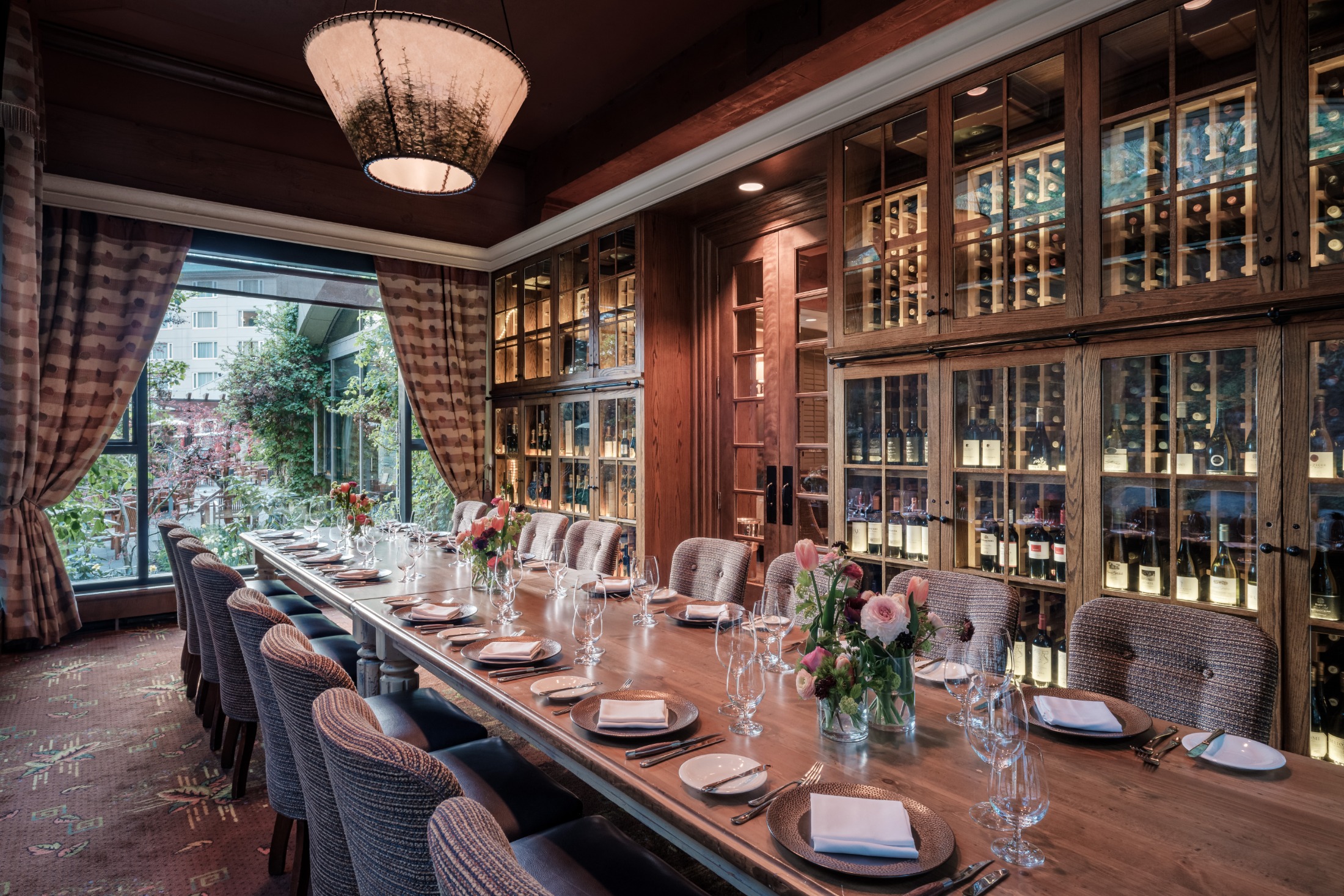
Fairmont Chateau Whistler’s private dining room. Photo courtesy of the Fairmont Chateau Whistler.
“We’re always trying to find more local, authentic food sources,” Chung says. “They speak to the region where we are, and it’s important to show respect for the land and the origin of where food comes from. It’s very important for our next generation to understand the provenance of food.”
Building a menu themed on hyper-local ingredients and Indigenous wines is about more than matching flavours, Chung says. It’s also about understanding history and culture.
“Seeing as how we are living, working, and serving guests on unceded territory, I think respect needs to be paid all the time,” Chung says. “The educational component is so important: knowing where we come from and where we’re going.”
More on food and wine.

